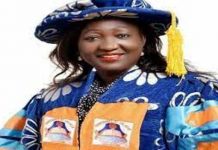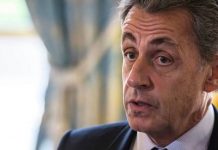Olu Fasan
Siminalayi Fubara returned as “governor” of Rivers State last week, six months after he was magisterially removed from office by President Bola Tinubu, following his declaration of an emergency rule in the state. Fubara returned with his tail between his legs, utterly humiliated. Henceforth, anyone who refers to Fubara as governor must put the word in inverted commas. Why? Well, truth be told, he’s not a governor in the true sense of the word. He owes his existence in office not to the people of Rivers State, but to President Tinubu, the National Assembly and Nyesom Wike, the former Rivers State governor, now Tinubu’s self-aggrandising and untouchable minister of the Federal Capital Territory, Abuja.
Last week, in his typical uppity self, Wike boasted on Channels TV: “If we don’t want this state of emergency to be lifted, we would have done one or two things to ensure that it continues.” It is proof, if any was needed, that Fubara doesn’t truly owe the office he now pretentiously occupies to democracy or to the people of Rivers State, but to a handful of overpowerful political oligarchs in Abuja, who act with impunity; it’s proof that Nigeria is under the rule of men, not the rule of law, under an autocracy, not a democracy
Alas, Fubara now suffers from the Stockholm syndrome. According to the Encyclopaedia Britannica, Stockholm syndrome is a “psychological response wherein a captive begins to identify closely with his or her captors, as well as with their agenda and demands.” That’s exactly Fubara’s mental state: he’s the abused, who’s bonding with his abusers; the captive who’s developing emotional attachment to his captors. Fubara is in office but not in power and now has to act so cautiously in that office that he might as well not be in the office at all. He is totally debased and reduced to an utter weakling.
Last week, Fubara said he didn’t challenge being forced out office on March 18 through the declaration of a state of emergency because of his “commitment to peace”, which implies he believed there were grounds for a legal challenge. Yet, in the same breath, he thanked Tinubu for imposing the emergency rule. Hear him: “I extend heartfelt gratitude to Mr President for his fatherly dispositions and decisive interventions in resolving the political crisis and for graciously restoring full democratic governance to our State.” In other words, according to Fubara, Tinubu’s declaration of a state of emergency in Rivers State and removal of its elected representatives from office were “decisive interventions”, and his decision not to extend the emergency rule beyond six months was a “gracious” act.
Earlier this week, Fubara visited Tinubu in Aso Rock to thank him for lifting the state of emergency. He said he told the president to “guide me properly” so that he won’t put a foot wrong in the future. Of course, what that means is that, henceforth, Fubara would completely submit himself to the agenda and demands of Tinubu and Wike, who he fulsomely describes as “Our Leader, His Excellency, Nyesom Ezenwo Wike, CON.” It is called Stockholm syndrome, a disease that takes away the dignity of a thoroughly abused and captive person such that he or she loses every sense of self-worth or self-esteem.
But Tinubu’s declaration of a state of emergency in Rivers State and removal of its elected representatives from office go well beyond the personal plights of Fubara and others affected. It raises a fundamental constitutional question, namely, whether in a supposed democracy and a supposed federal system a president can remove a democratically elected state governor from office. The closest credible answer we’ve got to that question, so far, came from the legal legend Chief Rotimi Williams, SAN, who chaired the committee that drafted the 1979 Constitution, from which the extant 1999 Constitution was entirely derived. In 2004, when President Obasanjo used a state of emergency to sack Joshua Dariye, then governor of Plateau State, Chief Williams, declared: “There is no provision contained in any part of our Constitution which confers such a power on the President,” saying that giving the president such a power would defeat the spirit of federalism.
Unfortunately, the Supreme Court, which is the final arbiter on that constitutional question, has twice balked away from pronouncing on it. When Obasanjo’s removal of Governor Dariye from office through an emergency rule was challenged at the Supreme Court, the apex court declined on technical grounds, namely, that Dariye was no longer in office. Professor Itse Sagay SAN, a renowned constitutional lawyer, lashed out, saying: “It is a great setback for democracy, the rule of law and federalism, that the Supreme Court dodged responsibility” to handle the case. He added: “It is a sad episode in Nigeria’s constitutional history that the Obasanjo regime got away with such gross acts of illegality and emasculation of federalism.”
Of course, as we all know, the Supreme Court has also refused to determine the case brought by eleven PDP governors challenging President Tinubu’s removal of Fubara from office and his appointment of a sole administrator in his place. Surely, the Supreme Court’s silence on this critical constitutional matter gives the Nigerian president carte blanche to use emergency rule as a sword of Damocles over state governors to secure loyalty or play partisan politics. But the real victims are, as Professor Sagay observed, democracy, the rule of law and federalism. In a military regime, a military head of state can remove any military governor at will. That should never happen in a democracy, but, sadly, it does happen in Nigerian democracy!
Perversely, some indulge in the semantics of distinguishing between “suspension” and “removal”, saying that Tinubu only “suspended” Fubara as governor, and did not “remove” him from office. But does the Constitution allow the president to “suspend” a governor from office? The Constitution guarantees a governor four years in office, subject to death, resignation or impeachment. And in the case of impeachment, there are carefully laid out constitutional procedures. Which other provision in the Constitution allows a governor’s term to be truncated outside of death, resignation and impeachment? None! Yet, by the time Fubara completes his term, if he completes it, he would only have served for three and a half years, not four. Where is that justifiable under the Constitution?
In a piece titled “Turbulence in the political sphere in Rivers: Was the declaration of a state of emergency the right call” (Vanguard, March 26, 2025), the legal icon Chief Afe Babalola SAN addressed the implications of the state of emergency on the governor’s tenure of office. Chief Babalola declared: “Since the Constitution is silent on this, Fubara and the state legislators of Rivers State will be reinstated at the termination of the emergency. However, the period of the state of emergency ought not to count when calculating their tenure of office,” adding: “That’s democracy.” But would that be the Supreme Court’s view, if it ever decides on it? Absolutely doubtful!
Truth is, Fubara would be thrilled to do just three and a half years as a puppet of Abuja. He’s utterly denuded. Rivers people thought they elected a governor but now have a GINO – Governor-In-Name-Only! It’s inconceivable that in a true democracy, a true federal system and a true rule-of-law state, the Supreme Court won’t pronounce on such a critical constitutional issue. Sadly, not in Nigeria. Shameful!
Vanguard






























































